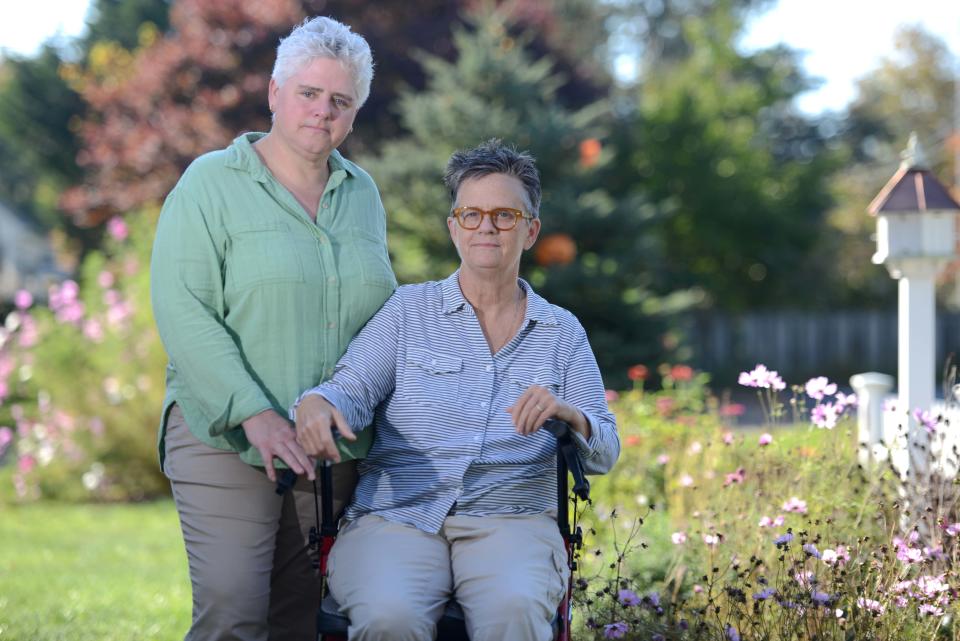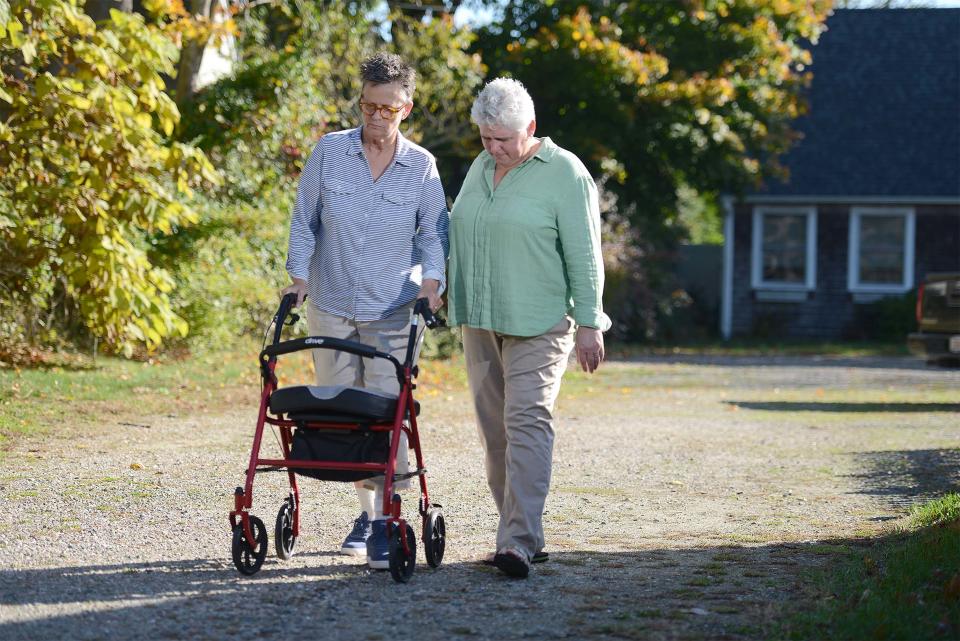Bridging the care gap: The urgent need for spouses as paid caregivers
Dawn Ericson-Taylor and her spouse, Patty, have been married for nearly 20 years, but in September 2021, life changed drastically for the couple.
The COVID-19 pandemic had created a significant workforce shortage and the couple wasn’t an exception: Patty worked up to 80 hours a week to fill the void left by staff shortages in the assisted living facility where she worked. She experienced occupational stress, and suffered a massive hemorrhagic stroke, leaving her left side paralyzed.

Taylor recounted how she found her footing.
“I was the shell shocked spouse and I think two days after this had happened, I was sitting at my friend's table having dinner with them consoling me” Taylor said. “It just hit me that I can't be the shell shocked spouse anymore, I have to go into advocate mode.”
Taylor was thrust into the role of a caregiver. Her professional career, spanning 30 years in human services, had involved advocating for adults with intellectual and physical disabilities and working with the elderly. However, the burden as a caregiver was tremendous.
“I don't have the financial resources to pay for private care and our income is not low enough to qualify for Medicaid MassHealth programs,” Taylor said. “So it's just that it can be kind of a lonely place just because the options are so few.”
Taylor was eventually able to arrange a hybrid work schedule through her employer, Elder Services of Cape Cod — a nonprofit organization that offers caregiver in-home support services. Its Family Caregiver Support Program provides support groups and monthly programs in person and virtually.
Taylor’s journey, from the shock of the sudden health crisis to her advocacy for a crucial legislative change, sheds light on the challenges faced by several caregivers and the urgent need for reform.
Bay State lawmaker proposes bill to ease burden on spouses who provide care
A bill before the Massachusetts Legislature seeks to expand the definition of family members eligible to be reimbursed through MassHealth programs. Currently, spouses are the only relationship excluded from that program. This legislation doesn’t affect program eligibility rules for enrollees, but broadens the definition of people who can serve as a paid caregiver.
Sen. Joanne M. Comerford, D-Northampton, introduced the bill to the Legislature’s Committee on Children, Families, and Persons with Disabilities, highlighting the need to allow spouses to serve as paid caregivers, especially given the extensive waiting lists for homecare services.

"There are people on the waiting list, as you know, who can't get the home care they need,” Comerford said. “Allowing qualified spouses to serve as family members who provide the care will actually expand the pool of caregivers, which I imagine then would reduce the waitlist and allow more people to get the care they need to stay at home.”
The bill would authorize the state’s Executive Office of Health and Human Services to seek a waiver from the federal government to make the change. Betsey Crimmins, executive director of Mass Home Care, finds several benefits from this provision.
“If people are given a choice, many would choose to have their spouse provide care, if it didn't mean complete financial catastrophe for the family,” Crimmins said. “There's continuity of care, there's somebody that you know, somebody that you trust who's there and you don't have to worry about someone calling in sick or moving or quitting.”
Home caregivers are less expensive than nursing homes
Crimmins also mentioned that caregivers who qualify for Medicaid can see cost savings compared to nursing homes or institutional settings.
“Nursing home care is both really expensive and it's where people end up having the worst health outcomes and average nursing home rates are $14,000 to $17,000 a month,” Crimmins said. “Within a couple of months, you've already paid out more for someone who's ... in an institutional setting where they don't want to be than what it would have cost to pay their spouse to stay home and provide the care to them for one whole year.”
The shortage of home care workers across the country can also lead to dire consequences. The Executive Office of Elder Affairs wait lists show 4,396 people eligible for in-home services that were waiting for a provider, according to Crimmins’ written testimony. Another 718 found a provider, but were waiting for services, which can take several months.
The federal government allows states to include spouses as paid caregivers in Medicaid programs. Fifteen states, including Vermont, California and North Dakota, have already embraced the change, showcasing the potential benefits of such legislation.
“I think people need to stop and take a moment and realize that at some point in their life they will be affected by this,” Dawn Ericson-Taylor said. “Knowing what I have sacrificed in my life, Patty has sacrificed, for us to coalesce and really try to recreate a life that still has dreams, that still has quality, that still has dignity, and we deserve the resources as caregivers.”
Thanks to our subscribers, who help make this coverage possible. If you are not a subscriber, please consider supporting quality local journalism with a Cape Cod Times subscription. Here are our subscription plans.
This article originally appeared on Cape Cod Times: Legislation filed to allow spouses to be paid caregivers

